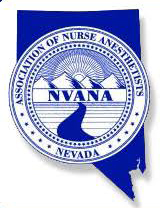The Issues
Nevada Regulations Limit Access to Quality Healthcare
In 2022, the largest anesthesia care provider in Nevada cancelled hundreds of surgeries due to the unavailability of anesthesia providers. Nevada needs quality anesthesia providers to address the surgical needs of patients. Yet, Nevada restricts the practice of Certified Registered Nurse Anesthetists (CRNAs) in two ways:
- Unnecessary supervision. Nevada requires that well-educated CRNAs (many with doctoral degrees) be unnecessarily supervised by a physician anesthesiologist.
- Advanced Practice Registered Nurse (APRN) Status. Most states offer CRNAs the status of Advanced Practice Registered Nurse (APRN) which recognizes the advanced education of Master’s Degree or higher to four advanced practice nursing roles including Certified Nurse Practitioners, Nurse Mid-Wives, Clinical Nurse Specialists, and CRNAs. Nevada’s regulations have carved CRNAs out of the APRN regulations. As a result, many CRNAs who consider moving to Nevada are discouraged because their status of APRN is negated and they cannot practice in the state without physician supervision.
Both of these regulatory conditions are discriminatory against CRNAs who have on average 7-8.5 years of additional education, plus significant clinical experience to earn the title of CRNA. As a result of this status, the shortage of anesthesia providers denies patient access to quality care, limits healthcare improvement (availability) and wastes taxpayer and private resources.
Adding Cost DOES NOT Expand Access to Healthcare
A bill to allow Anesthesiologist Assistants (AAs) is in the queue for introduction in the Nevada State Legislature. If enacted, this decision would not improve access to care or patient safety. It would however, increase the costs of surgical procedures to the patient and insurance companies.
A person with AA status is dependent on the anesthesiologist with their time billed as a medical expense. They can only work under the direct supervision of an anesthesiologist and cannot administer anesthesia independently. These dependent practitioners are not trained to make autonomous decisions when there are lapses in supervision. For safety reasons, an AA should be supervised on a 2:1 or 1:1 ratio rather than the (unnecessary) 4:1 ratio currently established for CRNA supervision in Nevada. The AA/Anesthesiologist team configuration is one of the most costly anesthesia delivery models with no scientific evidence of increased patient safety.
Allowing AAs into Nevada will not expand access to care or improve patient safety. It would simply add expense to the already too high cost of healthcare.
If Nevada needs to expand access to care, the legislature should codify independent practice for CRNAs who are extensively educated, trained and qualified to make independent judgments regarding all aspects of anesthesia care.
Support the ability of CRNAs to provide high quality, cost-effective care to this state’s patients without unnecessary restrictions.

